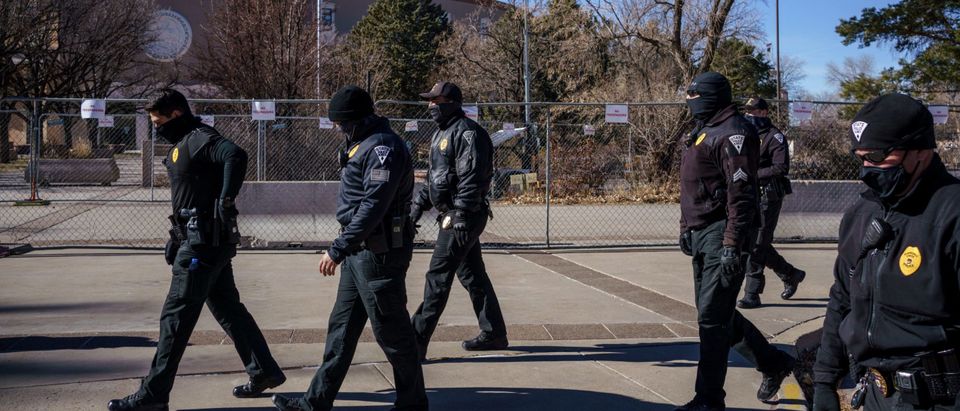Democratic New Mexico Gov. Michelle Lujan Grisham signed a law Wednesday ending qualified immunity for police and government workers.
The New Mexico Civil Rights Act prohibits the use of qualified immunity as a defense. Qualified immunity is typically used to protect police officers from civil suits unless they violated a clearly defined constitutional right. (RELATED: New York City Breaks Open Floodgates For Lawsuits Against Police Officers By Ending Immunity)
New Mexico is now the first state to end qualified immunity for all public bodies, according to a tweet from New Mexico House Democrats.
NOW: NM makes history as 1st state to end qualified immunity for all public bodies! Signed by @GovMLG, the NM Civil Rights Act ensures all whose civil rights are violated get their day in court. Thank you sponsors @brianegolf & @georgenelouis for demanding justice! #nmleg #nmpol pic.twitter.com/q0QD3Cyqey
— NM House Democrats (@NMHouseDems) April 7, 2021
“New Mexicans are guaranteed certain rights by our state constitution,” Grisham said in a statement. “Those rights are sacred, and the constitutional document providing for them is the basis of all we are privileged to do as public servants of the people of this great state.”
The legislation caps damage payouts at $2 million, according to Grisham’s office. The law is set to take effect July 1.
“Indeed, good public servants work tirelessly every single day to protect those rights, to ensure them, to safeguard New Mexicans. But when violations do occur, we as Americans know too well that the victims are disproportionately people of color, and that there are too often roadblocks to fighting for those inalienable rights in a court of law.”
A Pew Research Center survey from July found more than 60% of Americans support ending qualified immunity as a shield when police use excessive force. Only 32% of those surveyed said officers should be able to have qualified immunity from lawsuits.
Innocence Project State Policy Advocate Laurie Roberts hailed the ruling in a statement.
“The new law puts a price tag on police misconduct and creates a strong incentive for agencies to adopt and enforce policies that prevent abuses which can lead to wrongful convictions. It also provides exonerates with the financial justice they deserve after having their rights violated by government officials and having their freedom unjustly taken away.”












